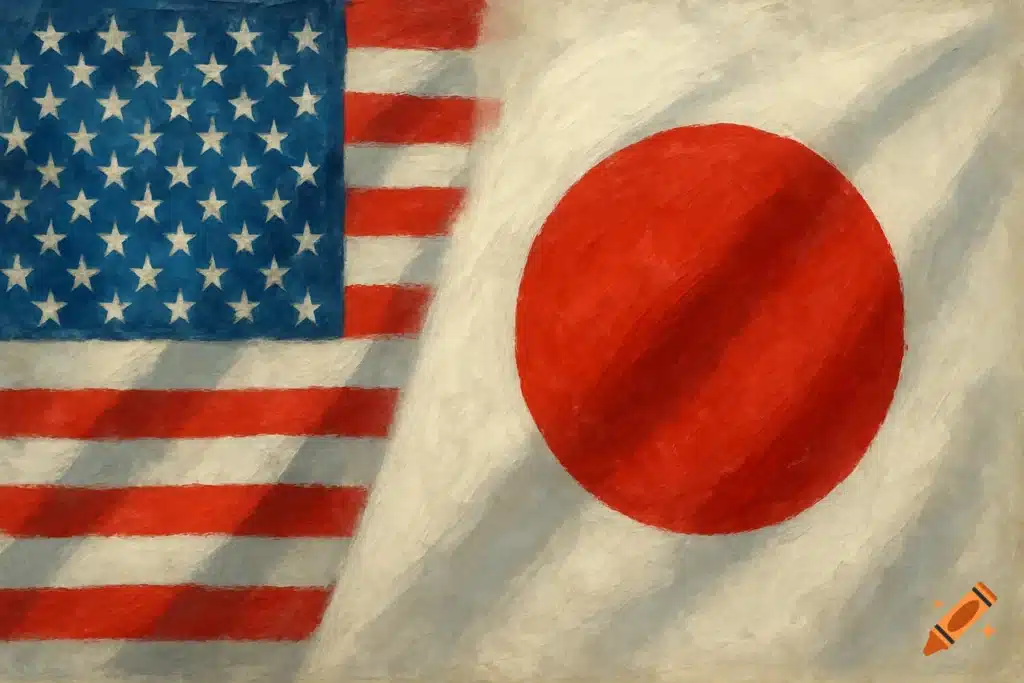
How Japan rips off the U.S. in Trade
While much of the media coverage of President Trump’s tariffs and trade negotiations center on China, it is important to remember the United States has allowed numerous countries, both friend and foe, to take advantage of our utterly inept trade strategies, which spanned decades and numerous presidencies. Thanks to the horribly misguided policies of globalism and free trade, we have earned a $1.2 trillion annual trade deficit with the rest of the world that manifests itself in a $37 trillion national debt.
Yet, despite being continuously ripped off, many of our trade partners are still viewed as benevolent friends and characterized as “professional” and “fair.” When these countries spoke out against the U.S. “Liberation Day” levies, they often found a sympathetic ear with the anti-Trump crowd.
“Surely,” the left proclaims with their usual righteous indignation, “an honorable country and valued ally like Japan wouldn’t rip us off, right?”
Think again.
For decades, Japan has been celebrated as a model free-trading partner. They are considered an advanced economy with zero tariffs on imported cars and a largely compliant U.S. partner in the Pacific. So, if all that is true, why do American-made vehicles account for less than 1% of the Japanese auto market while Japanese brands dominate U.S. roads?
It’s time we stop pretending this is about tariffs. The real issue is a maze of hidden barriers that effectively shut out foreign competition. As the U.S. re-engages Japan in trade negotiations, we must shift our focus from symbolic tariff talk to the far more insidious world of non-tariff barriers.
Japan’s Invisible Trade Fortress
When it comes to trade, Japan is a masterful dance partner. Tokyo imposes no formal duties on imported passenger vehicles. The U.S., by contrast, charges a modest 2.5% on cars and a steep 25% on trucks. To unenlightened leftists and media propogandists looking to portray the U.S. in a negative light, on the surface, this looks like American protectionism.
Instead, it’s a perfect example of how our trade “experts” in commerce and the treasury have been consistently outmaneuvered by our competitors over decades.
Foreign automakers trying to sell cars in Japan face an intimidating gauntlet of regulatory tripwires. Safety and emissions tests differ from international standards, requiring costly, redundant certifications. Japan’s “type approval” system is slow, opaque, and built for domestic incumbents. Good luck selling a car if you can’t get it through the regulatory door.
Even if you pass inspection, then what? Japan’s dealership networks are largely closed to outsiders. They adhere to a mysterious tradition called Keiretsu, where direct competitors and companies in complementary industries form what can only be termed a “good old boy” network. The entire purpose of this complicated labyrinth is to keep business local and block any foreign entries. That’s how homegrown giants like Toyota and Honda keep their vehicles in the spotlight. Foreign brands can’t get access to shelf space, financing, or service infrastructure. It’s like trying to enter an auto race where your competitor owns the track, the cars, the fuel, and the finish line.
Some argue that local, indigenous auto manufacturer dominance is simply a cultural thing, and while consumer preference for compact, domestic brands does play a role, it isn’t the cause. Instead, these factors are simply a consequence of a manipulated system where foreign options are intentionally sidelined.
Will the U.S. Lose Its Nerve?
Current negotiations are likely to follow a well-worn path. Japan will wait it out in hopes that domestic and international pressure mounts, and Trump needs a deal, any kind of deal, that will improve the optics with Wall Street. U.S. negotiators will likely push for incremental wins. Perhaps that means a few more beef exports here or a digital trade agreement there. In all likelihood they’ll avoid rocking the boat, especially in light of Japan’s critical position in deterring Chinese aggression.
Don’t expect a full-frontal assault on Japan’s auto fortress. It’s politically safer to score a few quick, measurable victories than to wade into the muck of institutional reform. In all likelihood, trade negotiations with Japan will be another wasted opportunity.
Too bad because that would be a big, fat mistake.
The Only Trade Deal with Japan That Makes Sense
If we want a truly reciprocal relationship with Japan, we need to stop treating it like a privileged partner and start treating it like a strategic economic competitor. There is no reason why the negotiations need to devolve into hostility or animosity. If that does happen, it’s simply another indication as to how skewed and out of balance our relationship with Japan really is.
First, we must confront Japan’s non-tariff barriers head-on. If a car meets U.S. or EU standards, it should be deemed road-ready in Japan. Period. Regulatory harmonization or mutual recognition agreements should be a cornerstone of any deal. There is no practical reason why this simple adjustment could not be made. Adopting EU and U.S. standards would not result in the degradation of Japan’s auto safety or environmental standards whatsoever.
Second, Japan must open its dealership and distribution networks. Market access is meaningless if American companies can’t reach customers. If Japan wants to be seen as a fair-trading partner, then it must dismantle the institutional walls propping up its domestic monopolies.
Third, we should tie economic openness to security benefits. Japan benefits enormously from the U.S. security umbrella. That leverage should not be squandered.
Let’s not be distracted by fool’s gold in trade. More agricultural quotas won’t fix a broken system. Real structural reform will.
A Fair Deal or Another Lost Opportunity?
For years, Japan has enjoyed the best of both worlds: protectionist policies at home and open markets abroad. American workers, manufacturers, and innovators have paid the price. If we continue down the same path of chasing short-term headlines over long-term fairness, we will simply reinforce a global message that economic might excuses economic manipulation.
Free trade only works when it’s fair. That means more than removing tariffs. It means removing the invisible barriers that quietly shut others out.
Japan is simply one of many “allies” that use these same unscrupulous tactics to gain an unfair advantage in trade. There is real money at stake here, so these countries will thrash and wiggle and scream bloody murder to maintain the status quo and their upper hand.
President Trump must maintain focus and demonstrate patience in these negotiations, because if he wavers, the U.S. will almost assuredly face a sovereign debt crisis within the next decade.



